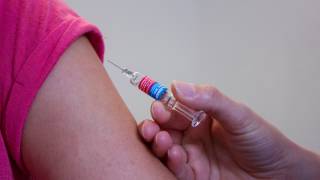Kidney Transplant Patients Need Vaccinations Too

Vaccine-preventable diseases remain at the forefront of challenges in the care of renal transplant recipients.
Although global vaccination campaigns targeting kidney transplant patients are standard, many individuals fail to receive the vaccinations that they need. Infectious diseases are the second most common cause of death in end-stage renal disease patients.
Which means, transplant patients are at risk of contracting vaccine-preventable diseases.
The journal Transplant Infectious Disease published a summary of a study “Barriers to Vaccination in Renal Transplant Recipients”.
This study’s authors identified insurance coverage as the #1 barrier to vaccination adherence. They found 7 percent of renal transplant candidates do not have adequate insurance coverage.
Specially, these authors identified the herpes zoster vaccination as the most important to be completed two weeks prior to a kidney transplant.
In 2009, the Kidney Disease Improving Global Outcomes (KDIGO) published evidence-based guidelines for care of kidney transplant recipients, including vaccination.
The KDIGO’s key immunization recommendation is to administer live vaccines before renal transplant, and to employ an accelerated vaccination schedule if necessary to ensure that all vaccines are completed before the transplantation occurs.
Additionally, this study suggests healthcare providers and pharmacists are the best people to ask about which vaccinations you should receive prior to an operation.
According to the Centers For Disease Control and Prevention (CDC), vaccines work with the body's immune system. If the immune system does not work properly, the vaccine may not work appropriately, or may even cause harm.
Because transplant recipients use medications that affect the immune system, it is important to understand which vaccines you should and should not have.
The CDC says most vaccines fall into two categories: inactive or live. Inactive vaccines are considered safe for transplant recipients, but live vaccines should be avoided.
In general, if you have a transplant, you should avoid:
- Chickenpox (varicella)
- Shingles (Herpes Zoster)
- Measles, Mumps, Rubella (MMR)
- Yellow Fever
Vaccines may be covered by your insurance. Local health departments may provide them free-of-charge or at a lower cost. The cost of these vaccines varies, and can be easily researched at this CDC website.
These researchers, all pharmacists, did not disclose any conflicts of interest: Angela Q. Maldonado, David Johnson, Jennifer Trofe-Clark. This article has undergone full peer review.
Our Trust Standards: Medical Advisory Committee
- Barriers to vaccination in renal transplant recipients
- A Guide for Adults with Kidney Disease, Kidney Failure, or a Kidney Transplant
- Guidelines for vaccination in kidney transplant recipients
- Special Issue: KDIGO Clinical Practice Guideline for the Care of Kidney Transplant Recipients
- Renal Disease and Adult Vaccination
- Renal replacement therapy in Europe: the results of a collaborative effort by the ERA-EDTA registry and six national or regional
























